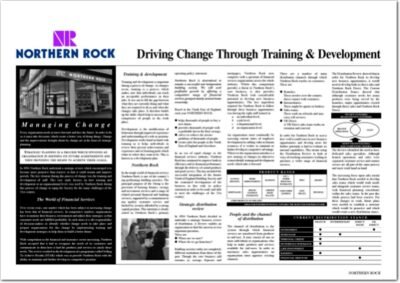The concept of liberty has been a central theme in political philosophy for centuries, with roots dating back to ancient Greece and Rome. In the 5th century BC, the Greek historian Herodotus wrote about the struggle for freedom and the tyranny of rulers. This early exploration of liberty laid the groundwork for future philosophical discussions on the nature of freedom and its implications for society.
In the 17th century, English philosopher John Locke further developed the concept of natural rights and individual liberty, arguing that people have inherent rights to life, liberty, and property. His ideas heavily influenced the American and French Revolutions, shaping the modern understanding of liberty as a fundamental human right. Additionally, the Enlightenment period in the 18th century saw the rise of thinkers like Jean-Jacques Rousseau and Immanuel Kant, who further expanded on the concept of liberty.
Rousseau’s social contract theory emphasized the importance of individual freedom within the context of a collective society, while Kant’s moral philosophy stressed the autonomy and rationality of individuals as essential components of liberty. These early theories of liberty laid the foundation for contemporary discussions on the nature of freedom and its role in shaping political and social structures. The origins of theories of liberty are deeply rooted in historical and philosophical contexts, with contributions from ancient civilizations to the Enlightenment period.
These early explorations have shaped modern understandings of liberty as a fundamental human right and have influenced political movements and revolutions throughout history.
Key Takeaways
- The origins of theories of liberty can be traced back to ancient Greece and Rome, where philosophers like Plato and Aristotle discussed the concept of freedom and its implications for society.
- Understanding negative liberty involves the absence of external constraints or interference, allowing individuals to act without obstacles or coercion.
- Exploring positive liberty focuses on the idea of self-mastery and the ability to pursue one’s own goals and desires, even in the face of internal obstacles.
- The concept of republican liberty emphasizes the importance of civic engagement and participation in the political process as a means of preserving freedom.
- Critiques and controversies surrounding theories of liberty include debates about the balance between individual freedom and social responsibility, as well as the potential for inequalities to arise in the pursuit of liberty.
Understanding Negative Liberty
Protecting Individual Autonomy
Proponents of negative liberty argue that it is essential for protecting individual autonomy and preventing oppressive state control. From a philosophical perspective, negative liberty can be understood as the freedom from external constraints that limit an individual’s choices and actions. This includes freedom from government coercion, social pressures, and other forms of interference that hinder personal autonomy.
Examples of Negative Liberty
For example, the right to free speech and freedom of religion are often framed within the context of negative liberty, as they protect individuals from government censorship and persecution.
Criticisms and Limitations
Critics of negative liberty argue that it fails to address systemic inequalities and social barriers that can limit individual freedom. They contend that a purely negative conception of liberty overlooks the ways in which economic, social, and cultural factors can restrict opportunities and choices for certain groups within society.
Enduring Influence
Despite these criticisms, negative liberty remains a foundational concept in liberal political theory and continues to shape debates on individual rights and government intervention.
Exploring Positive Liberty

Positive liberty, in contrast to negative liberty, focuses on the capacity for self-realization and self-determination. This concept emphasizes the idea that true freedom is not simply the absence of external constraints, but also the ability to actively pursue one’s own goals and aspirations. Positive liberty is often associated with social welfare policies and collective action aimed at promoting equality and empowering individuals to overcome systemic barriers.
From a philosophical standpoint, positive liberty can be understood as the ability to act in accordance with one’s own will, free from internal obstacles such as ignorance or irrational desires. This perspective highlights the importance of education, social support systems, and economic opportunities in enabling individuals to achieve their full potential. Proponents of positive liberty argue that it is essential for addressing structural inequalities and promoting social justice within society.
Critics of positive liberty caution against potential abuses of state power in promoting collective goals at the expense of individual rights. They argue that a strong emphasis on positive liberty can lead to authoritarianism and paternalistic policies that undermine personal autonomy. Despite these concerns, positive liberty continues to be a central concept in debates on social justice and human development, shaping policies aimed at addressing systemic inequalities and promoting individual empowerment.
The Concept of Republican Liberty
Republican liberty, also known as civic or participatory liberty, emphasizes the active engagement of citizens in self-governance and public life. This concept is rooted in classical republican thought, which views political participation and civic virtue as essential components of freedom. Republican liberty emphasizes the importance of a virtuous citizenry and a robust public sphere in maintaining a free and democratic society.
From a philosophical perspective, republican liberty can be understood as the collective self-rule of citizens who actively participate in shaping their own political destiny. This perspective highlights the importance of civic engagement, public deliberation, and a sense of common purpose in fostering a healthy democracy. Proponents of republican liberty argue that it is essential for promoting active citizenship and preventing the concentration of power in the hands of a few elites.
Critics of republican liberty caution against potential exclusions and limitations on individual freedoms that can arise from excessive emphasis on collective decision-making. They argue that a strong focus on civic virtue and public participation may overlook the diverse needs and interests of individuals within society. Despite these criticisms, republican liberty continues to be a central concept in discussions on democratic governance and civic engagement, shaping debates on the role of citizens in shaping political institutions.
Critiques and Controversies Surrounding Theories of Liberty
Theories of liberty have been subject to various critiques and controversies throughout history, reflecting diverse perspectives on the nature of freedom and its implications for society. One common critique revolves around the tension between individual rights and collective responsibilities. Critics argue that an exclusive focus on individual liberties may overlook broader social inequalities and systemic barriers that limit opportunities for certain groups within society.
Conversely, an overemphasis on collective goals may lead to authoritarianism and paternalistic policies that undermine personal autonomy. Another source of controversy surrounding theories of liberty is the role of state intervention in promoting freedom. Proponents of negative liberty advocate for limited government intervention to protect individual rights, while proponents of positive liberty argue for state action to address systemic inequalities and promote social justice.
This debate raises questions about the appropriate balance between individual autonomy and collective well-being within society. Additionally, theories of liberty have been critiqued for their potential cultural biases and limitations in addressing diverse perspectives on freedom. Critics argue that Western-centric conceptions of liberty may not fully capture the experiences and aspirations of individuals from non-Western cultures or marginalized communities.
This critique highlights the need for a more inclusive and intersectional approach to understanding freedom within a global context.
Modern Applications of Theories of Liberty

The Protection of Civil Liberties
The concept of negative liberty has significantly influenced legal frameworks that protect civil liberties, such as freedom of speech, privacy rights, and due process. These legal protections are essential for safeguarding individual autonomy and limiting government overreach.
Promoting Social Justice and Human Development
On the other hand, positive liberty has informed social welfare policies aimed at addressing systemic inequalities and promoting human development. Initiatives such as universal healthcare, education reform, and economic empowerment programs are designed to expand opportunities for individuals to pursue their own goals and aspirations. These policies reflect a commitment to promoting social justice and empowering marginalized communities.
Fostering Civic Engagement and Democratic Governance
Republican liberty has also influenced efforts to promote civic engagement and democratic governance. Initiatives aimed at increasing voter participation, promoting public deliberation, and strengthening community organizing reflect a commitment to fostering an active citizenry and robust public sphere. These efforts are essential for maintaining a healthy democracy and preventing the concentration of power in the hands of a few elites.
The Future of Liberty: Evolving Perspectives and Debates
The future of liberty is shaped by evolving perspectives on freedom and ongoing debates about its implications for society. As global challenges such as climate change, technological advancements, and geopolitical shifts continue to reshape our world, new questions arise about the nature of freedom in an interconnected and rapidly changing environment. These challenges require a reevaluation of traditional theories of liberty to address emerging issues such as digital privacy rights, economic globalization, and environmental sustainability.
Furthermore, evolving perspectives on diversity, equity, and inclusion call for a more inclusive approach to understanding freedom within a multicultural and pluralistic society. This requires acknowledging diverse experiences and aspirations within different communities while promoting universal principles of human rights and dignity. Embracing intersectional perspectives on freedom is essential for addressing systemic inequalities and promoting social justice within a global context.
The future of liberty also hinges on ongoing debates about the appropriate role of government intervention in promoting individual rights and collective well-being. Balancing the need for limited government intervention with efforts to address systemic barriers requires thoughtful deliberation and collaboration across diverse stakeholders. Finding common ground on these complex issues is essential for shaping policies that promote both individual autonomy and social justice.
In conclusion, theories of liberty have deep historical roots that continue to shape contemporary discussions on freedom within society. Understanding the nuances of negative liberty, positive liberty, and republican liberty provides valuable insights into the complexities of promoting individual rights and social justice. Critiques surrounding theories of liberty reflect diverse perspectives on the nature of freedom and its implications for society.
Modern applications of theories of liberty inform legal frameworks, social welfare policies, and efforts to promote civic engagement. The future of liberty is shaped by evolving perspectives on freedom, ongoing debates about its implications for society, and emerging challenges that require reevaluating traditional theories to address complex issues in an interconnected world.
If you’re interested in exploring the concept of Republican liberty further, you may want to check out this article on the Maltese NGO Repubblika and their efforts to combat misinformation and promote transparency in government (source). This article delves into the importance of holding those in power accountable and the role of civil society in upholding Republican values.
FAQs
What are the main theories of liberty?
The main theories of liberty are negative liberty, positive liberty, and republican liberty. These theories offer different perspectives on the concept of freedom and the role of the state in ensuring individual liberty.
What is negative liberty?
Negative liberty, as defined by philosopher Isaiah Berlin, refers to the absence of external obstacles or constraints on an individual’s actions. It emphasizes the importance of non-interference and the protection of individual rights from government or other individuals.
What is positive liberty?
Positive liberty, as articulated by philosopher and economist John Stuart Mill, focuses on the individual’s ability to act in their own best interest and achieve self-realization. It emphasizes the role of the state in providing the necessary conditions for individuals to exercise their freedom, such as education and economic opportunities.
What is republican liberty?
Republican liberty, also known as civic or participatory liberty, emphasizes the active participation of citizens in the political process and the collective self-governance of the community. It emphasizes the importance of civic virtue and the common good, as well as the need for a well-ordered society to ensure individual freedom.
 Driving change through training and development (PDF)
Driving change through training and development (PDF)  Motivation within a creative environment (PDF)
Motivation within a creative environment (PDF) 